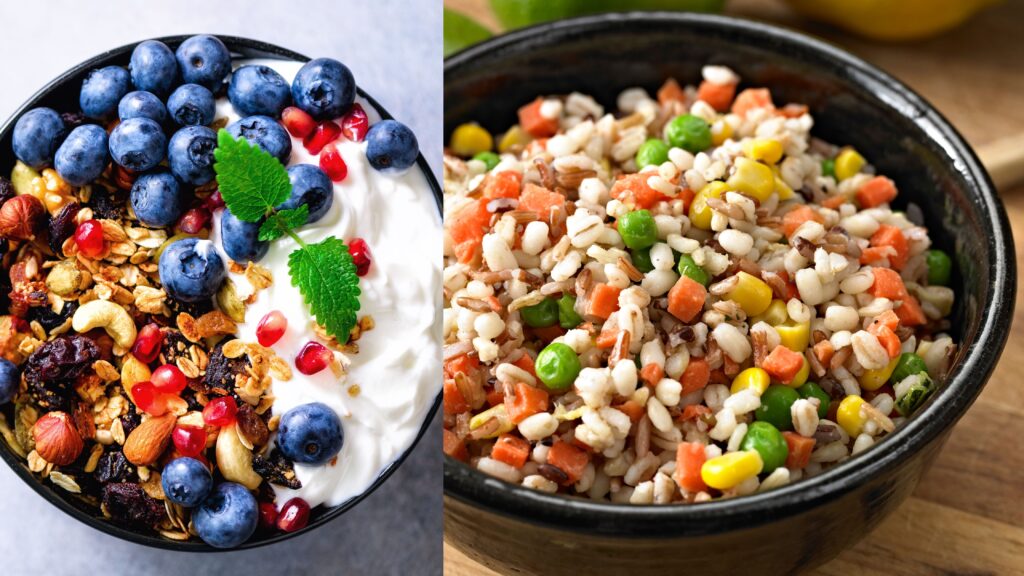In the quest for better health and increased energy levels, many people are keen to understand what vitamins boost metabolism. Metabolism is the process by which our bodies convert what we eat and drink into energy. This complex biochemical process involves combining calories from food with oxygen to release the energy needed to fuel our bodies. A more efficient metabolism can help in weight management, enhance energy levels, and improve overall health.
The Role of Vitamins in Metabolism
Vitamins are organic compounds that are crucial for various bodily functions, including metabolism. They act as catalysts in metabolic pathways, ensuring that the body processes nutrients effectively. Knowing what vitamins boost metabolism can help individuals optimize their nutrient intake to support metabolic health.
B Vitamins: The Metabolic Powerhouses
Among the vitamins known to boost metabolism, B vitamins are at the forefront. There are eight B vitamins, each playing a unique role in metabolic processes:
- B1 (Thiamine): Thiamine is essential for the conversion of carbohydrates into energy. It helps in the proper functioning of the nervous system and muscles.
- B2 (Riboflavin): Riboflavin is involved in energy production and assists in the breakdown of fats, drugs, and steroid hormones.
- B3 (Niacin): Niacin aids in the functioning of the digestive system, skin, and nerves. It plays a role in converting food into energy.
- B5 (Pantothenic Acid): This vitamin is crucial for the synthesis of coenzyme A, which is vital for fatty acid metabolism.
- B6 (Pyridoxine): Pyridoxine is involved in amino acid metabolism and the production of neurotransmitters and red blood cells.
- B7 (Biotin): Biotin is necessary for the metabolism of carbohydrates, fats, and proteins.
- B9 (Folate/Folic Acid): Folate is essential for DNA synthesis and repair, as well as the production of red blood cells.
- B12 (Cobalamin): Cobalamin is crucial for neurological function, DNA production, and red blood cell formation.
Vitamin D: The Sunshine Vitamin
Vitamin D, often known as the sunshine vitamin, is another key player in boosting metabolism. It helps regulate calcium and phosphorus absorption, which is important for maintaining healthy bones. Additionally, vitamin D influences the function of the muscles and the immune system, which are critical for maintaining an active lifestyle and a healthy metabolism.
Vitamin C: The Immune Booster
Vitamin C is famous for its role in supporting the immune system, but it also has metabolic benefits. This antioxidant vitamin helps in the synthesis of carnitine, a molecule essential for the transport of fatty acids into the mitochondria, where they are burned for energy. Vitamin C also aids in the absorption of iron from plant-based foods, which is necessary for oxygen transport and energy production.
Vitamin E: The Protector
Vitamin E is a powerful antioxidant that helps protect cells from oxidative stress. By safeguarding the cells, vitamin E ensures that the metabolic processes run smoothly. It plays a role in maintaining the integrity of cell membranes and prevents damage that could interfere with energy production.
How to Incorporate These Vitamins into Your Diet
Understanding what vitamins boost metabolism is just the first step. Incorporating these vitamins into your diet through natural food sources can help you maximize their benefits.

Foods Rich in B Vitamins
- B1 (Thiamine): Whole grains, fish, and legumes.
- B2 (Riboflavin): Dairy products, eggs, lean meats, and green leafy vegetables.
- B3 (Niacin): Poultry, fish, whole grains, and nuts.
- B5 (Pantothenic Acid): Chicken, beef, potatoes, and oats.
- B6 (Pyridoxine): Chickpeas, bananas, potatoes, and fortified cereals.
- B7 (Biotin): Eggs, almonds, sweet potatoes, and spinach.
- B9 (Folate/Folic Acid): Dark green leafy vegetables, beans, peas, and citrus fruits.
- B12 (Cobalamin): Meat, fish, dairy products, and fortified cereals.
Foods Rich in Vitamin D
- Fatty fish such as salmon, mackerel, and sardines.
- Fortified foods like milk, orange juice, and cereals.
- Egg yolks and mushrooms.
Foods Rich in Vitamin C
- Citrus fruits such as oranges, grapefruits, and lemons.
- Berries, including strawberries, raspberries, and blueberries.
- Bell peppers, broccoli, Brussels sprouts, and spinach.
Foods Rich in Vitamin E
- Nuts and seeds, such as almonds, sunflower seeds, and hazelnuts.
- Green leafy vegetables like spinach and broccoli.
- Vegetable oils, including sunflower oils, safflower oil, and wheat germ oil.
Optimizing Vitamin Intake for Metabolic Health
While incorporating these vitamins into your diet is essential, there are additional strategies to optimize your vitamin intake for metabolic health.
Balanced Diet
A balanced diet that includes a variety of foods ensures that you receive a broad spectrum of vitamins and other nutrients vital for metabolism. Aim to fill your plate with colorful fruits and vegetables, lean proteins, whole grains, and healthy fats.
Supplementation
In some cases, dietary supplements may be necessary to meet your vitamin needs, especially if you have dietary restrictions, certain health conditions, or limited sun exposure. However, it’s crucial to consult with a healthcare provider before starting any supplementation to avoid potential overdoses and interactions with other medications.
Hydration
Staying hydrated is essential for metabolic processes. Water is involved in the digestion and transportation of nutrients, as well as the elimination of waste products. Aim to drink plenty of water throughout the day to support your metabolic health.
Regular Physical Activity
Exercise can boost your metabolism by increasing muscle mass, which in turn burns more calories, even at rest. Combine aerobic activities like walking, running, or cycling with strength training exercises to maximize metabolic benefits.
Healthy Sleep Patterns
Adequate sleep is vital for metabolic health. Poor sleep can disrupt hormone levels, including those that regulate appetite and metabolism. Aim for 7-9 hours of quality sleep per night to support your body’s metabolic processes.
Stress Management
Chronic stress can negatively affect metabolism by altering hormone levels and increasing inflammation. Practices such as mindfulness, meditation, and yoga can help manage stress and support metabolic health.
Conclusion
Understanding vitamins to boost metabolism can empower you to make informed dietary and lifestyle choices that enhance your energy levels and overall health. Vitamins such as B vitamins, vitamin D, vitamin C, and vitamin E play crucial roles in metabolic processes, and incorporating foods rich in these vitamins into your diet is a natural way to support a healthy metabolism. Additionally, maintaining a balanced diet, staying hydrated, engaging in regular physical activity, ensuring sufficient sleep, and managing stress are all essential components of a holistic approach to metabolic health.
By focusing on these strategies, you can optimize your metabolism, improve your energy levels, and enhance your overall well-being. Always remember to consult with healthcare professionals before making significant changes to your diet or lifestyle, especially when considering supplementation.
Boosting your metabolism with the right vitamins and healthy habits can lead to a more vibrant and energetic life. Start today by incorporating these vitamins into your daily routine and embracing a lifestyle that supports your metabolic health.




